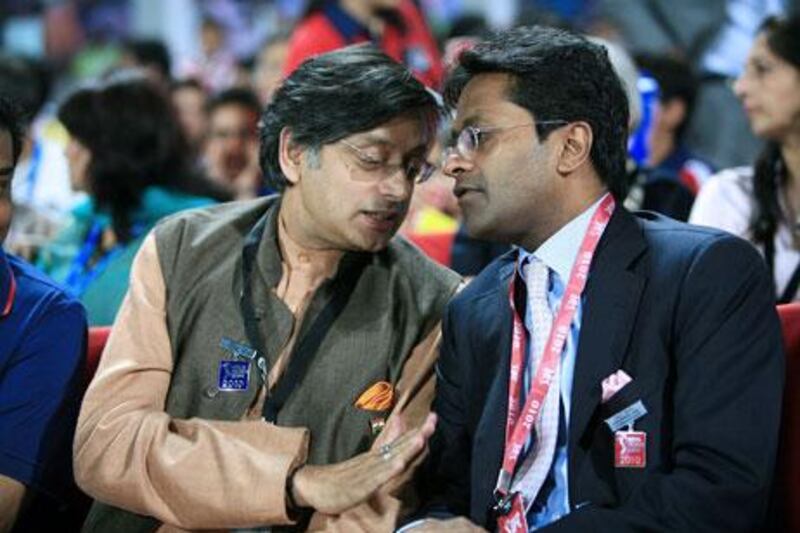2008
Differences with ECB
The England and Wales Cricket Board (ECB) refused to sign No Objection Certificates permiting its contracted cricketers to play in the IPL's inaugural season. What is essentially a domestic tournament, the IPL's dates coincided with those of the County Championship, which is organised by the ECB. Results being England players, with a few exceptions, continue to skip the annual competition while the two boards still share an awkward equation.
Media restrictions
The IPL surprised media outlets when it enforced guidelines on covering matches. One criterion, in particular, angered the fourth estate which was to do with image rights. They restricted the use of images during the event unless purchased from cricket.com owned by Live Current Media Inc - who won the rights to such images - and the prohibition of live coverage from the cricket grounds. The IPL was forced to reduce restrictions after the print media protested.
2009
Conflict with CCI
The IPL said the winners of the previous edition could choose where finals of the current edition would be held. The Deccan Chargers opted for the Brabourne Stadium in Mumbai. But the Cricket Club of India told the IPL it would not reserve its pavilion to the league and reserved sole rights even during the match.
2010
Modi suspended
Lalit Modi, then vice president of the Board of Control of Cricket in India (BCCI), was dismissed as the IPL commissioner. The IPL, a brainchild of Modi, attracted plenty of bad press over the purchase of the Kochi Tuskers Kerala franchise. Modi had been in a war of words with Shashi Tharoor, then minister of state for external affairs in India, over his alleged role in the purchase. Tharoor maintained his innocence but resigned. And on April 25, Modi was suspended for "alleged acts of individual misdemeanours". He was eventually banned by the BCCI, who later reported several important documents missing from IPL and BCCI offices. "Many of the records are missing. The IT [Income Tax department] is asking for documents. We don't have them," it said indicating foul play on part of Modi.
2011
Kochi franchise sacked
On September 19, N Srinivasan, the BCCI president, announced that Kochi Tuskers were being terminated after the franchise failed to submit a bank guarantee. The consortium that owned Kochi reported to have defaulted on an annual payment of 1.56 billion Indian rupees (Dh104 million).
2012
Bangalore player arrested
Luke Pomersbach, the Australian batsman, was arrested and charged with molesting a woman and assaulting her fiance after an incident at a hotel in New Delhi. The Royal Challengers Bangalore player was released on bail, but he had to surrender his passport. The case was eventually settled out of court and the charges were dropped.
Ban on Shah Rukh Khan
Shah Rukh Khan, the Bollywood superstar whose Red Chillies Entertainment company owns a little over 50 per cent stake in the Kolkata Knight Riders franchise, lost his temper when he saw guards allegedly push a group of children he had brought to the Wankhede Stadium, Mumbai. Shah Rukh's fight in the aftermath of an IPL game between Kolkata and Mumbai Indians escalated to the point the 47 year old was banned from the stadium for five years by the Mumbai Cricket Association.
Spot-fixing case
On May 14, the news channel India TV aired a sting operation that accused five cricketers of being involved in spot-fixing. TP Sudhindra (Deccan Chargers), Mohnish Mishra (Pune Warriors), Amit Yadav, Shalabh Srivastava (both Kings XI Punjab) and Abhinav Bali (Delhi Daredevils) were all immediately suspended.
Drugs at a rave party
Rahul Sharma, the Pune Warriors leg-spinner, and his South African teammate, Wayne Parnell, were among 86 people who tested positive for recreational drugs following a rave party held in Juhu, an affluent suburb in Mumbai, on May 20.
Follow us
[ @SprtNationalUAE ]





